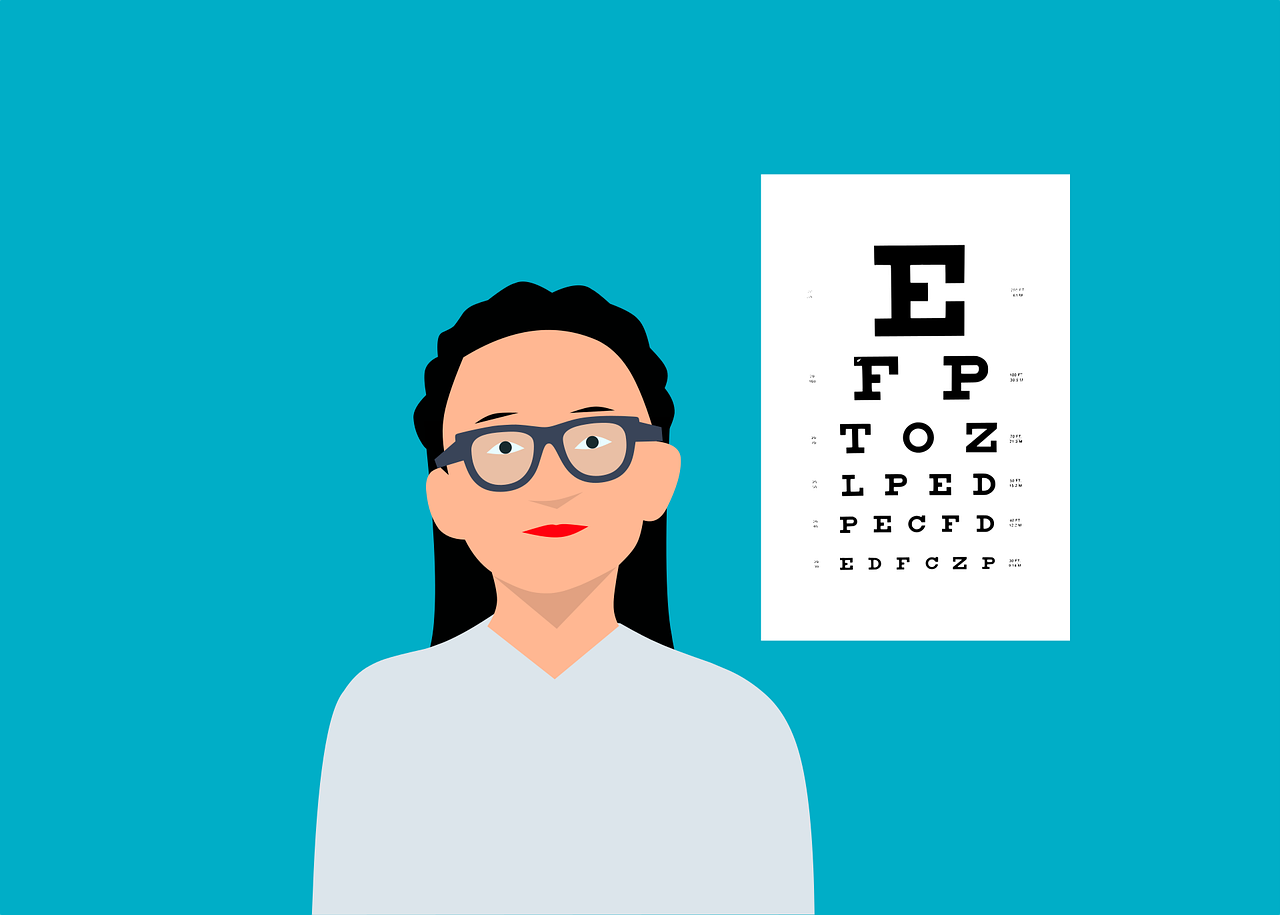Here are some frequently asked questions about eye tests:
How do I prepare for an eye test?
Follow these tips to get the most out of your eye exam:
- Bring your current or favourite pair of glasses. Even if the glasses are broken or scratched, information about your prescription can be read from the lenses. This can help us inform you accurately if your prescription has changed and also helps us make important decisions about your new glasses prescription. Same applies to contact lens prescriptions, bring a copy of the prescription you are currently wearing, or the boxes themselves.
- If you wear contacts, it is best to call the clinic in advance and discuss the reason for your visit, our staff can advise you whether to wear the contact lenses to your appointment or to wear your glasses.
- If you have been having any eye problems, take a moment to think about them in detail, you could even make some notes. Have a think about when they started, one or two eyes, what makes them worse, and what helps/ doesn’t help. The Optometrist will likely ask questions like this so it is worth being prepared.
- Know your family history of eye problems if any. Call your parents, grandparents, brother or sister! You know they would love to hear from you, and it is important to know your family history of eye disease. Ask if anyone has or did have conditions like glaucoma, macular degeneration, cataracts, retinal detachment, etc. Tip: try and keep the history to more direct family (Mum, Dad, Siblings, Grandparents), we don’t really need to know about your uncle’s wife’s cousin.
- Bring any eye drops or other eye-related medications you are currently using. This includes prescription medications as well as OTC (over the counter) preparations.
- Be ready to actively participate in the conversation and decision-making process with your Optometrist. We love to build relationships with our patients, and we endeavor to get to know you as best we can in order to make the best recommendations possible. We may ask you about your work, hobbies, kids, etc. Apart from just getting to know you, this also helps us build a picture of your visual needs in the real world, not just in the clinic chair.
What to expect when getting an eye test?
A comprehensive eye examination involves a range of tests to evaluate your vision and check for eye diseases. Your Optometrist will use various instruments throughout the test some of which will include shining bright lights in your eyes. Each test during an eye exam evaluates a different aspect of your vision or eye health.
If the Optometrist is doing a test that involves touching you or putting eye drops in, they will inform you before doing so. Most tests by far though do not need this and are not invasive at all.
Initially, you will be asked about what is bringing you in? Just a routine check? Any problems? If you are having any problems with your vision, try and recall details such as: how often it is happening, how long does it last, one eye or both eyes?
The Optometrist may also ask about your general health and any medications you are taking, along with any relevant ocular history (eg. known current eye problems, past injuries or surgeries in/around your eyes). Also you may be asked about your family history of any eye problems. If you are not sure, have a quick chat to your family and ask them about that thing that they told you about last Christmas.
How long does an eye test take?
For a comprehensive eye test, you should allow 30-45 mins, depending on your needs. It is best to arrive 5-10 mins early to your appointment as well so we can get/ update some of your details when you arrive. Most independent optometrist practices block off larger appointment times than larger chain practices who often will be managed by staff with quotas and targets to achieve, usually leading to shorter and more rushed appointment times. A clinic with proper patient care procedures will make sure that they have enough time to spend with each patient to do a full and thorough eye test and make appropriate recommendations.
What does an eye test cost? And why?
Obviously this will vary from practice to practice. Most independent practices in Australia are not fully bulk-billing anymore. Private fees usually apply for an eye test and any Medicare rebates that apply are generally processes automatically on the spot without patients needing to do anything manually.
The Optometrist will explain the findings of the eye test, and depending on the findings, may recommend some extra testing which might have additional costs attached. Depending on the test you need, the Optometrist may have the equipment to do the test themselves or they might offer you a referral to an appropriate clinic to have the recommended further testing done.
Why doesn’t everyone bulk-bill anymore? Pretty simple actually, in 2015 the Australian Government reduced Medicare rebates and froze yearly increases indefinitely. Unfortunately, without government support for eye care, Medicare rebates no longer covered the costs of providing sometimes even basic eye care. None of the more modern tests and pieces of equipment that most Optometrists use even have a Medicare item number in Australia. These pieces of equipment are quite expensive and are often updated on a regular basis by the Optometrist. This means that practices with a high level of equipment will charge private fees to help cover these costs.
So if your Optometrist is charging private fees for eye testing, in a weird way this is kind of a good thing: it is usually a strong sign that the Optometrist has probably invested a decent amount of money to keep their equipment up to date and has in interest in good patient care.
What other health issues can be seen through the eyes?
A variety of general health issues can actually be detected (and often are) through a comprehensive eye test. Some common conditions are listed below as just a few examples:
Diabetes: The fine blood vessels that supply the retina are some of the finest blood vessels that you can “easily” examine in the human body, meaning without the need for invasive testing or dyes. Diabetes can cause leakage of these fine blood vessels in the eye and often these very fine bleeds are completely asymptomatic. It is estimated that up to 20% of diabetics are actually diagnosed with diabetes following a referral from their Optometrist or Ophthalmologist to get a blood test with their GP.
High Blood Pressure: Very similar to diabetic patients, high blood pressure can also cause leakage of the fine blood vessels in the eye and your Optometrist may notice some fine micro-aneurysms within the retina as a result. Again, the Optometrist will usually communicate with your GP and suggest some follow up testing.
Migraine: Visual auras are a common feature of migraines. The visual symptoms can occur by themselves (without the traditional headache) or in association with the traditional headache symptoms. Changes to the frequency or type of visual symptoms can sometimes instigate further testing.
Thyroid Dysfunction/ Other hormonal changes: Hormonal changes/ imbalances in the body can sometimes cause visual or ocular symptoms. A good example of this is thyroid disease, which can affect the vision in many different ways, very commonly by simply causing bad dry eyes. It can also cause symptoms like blurred vision, restricted eye movements, double vision and eyelid dysfunctions.
Skin Cancers/ Melanoma: Not a lot people realise that aside from your skin, the eyes are the next most common place to find these nasty lesions. The eyelids and ocular surface can be common places to find things like Basal Cell Carcinomas (BCC) and Squamous Cell Carcinomas (SCC). And you can get Melanomas in both the front and back of your eye too. If you think about it, you don’t put sun screen near your eyes but they are still open and exposed to UV rays. It is fair common for skin screening clinics to refer patients for eye testing if they feel a patient is particularly susceptible.
Does being tired affect the eye test?
Yes and No. The Optometrist should be able to tell if your results are being affected by excessive tiredness during the test. If so, they will often recommend re-testing you another day before going ahead and making a prescription. Having said that, this is pretty uncommon. Even if you feel a bit tired, it generally does not affect the measurement or accuracy of your prescription (when done properly of course).
How can I book an eye test?
Making an appointment is easy! No referral is needed to see an Optometrist in Australia. Simply call and make an appointment at a time that suits you. Most practices offer some appointments outside of traditional business hours (eg. evening hours, weekends). Alternatively, most practices now have online services that allow you to see available appointment and book directly through an online portal anytime you like, 24hrs/day, 7 days a week.




